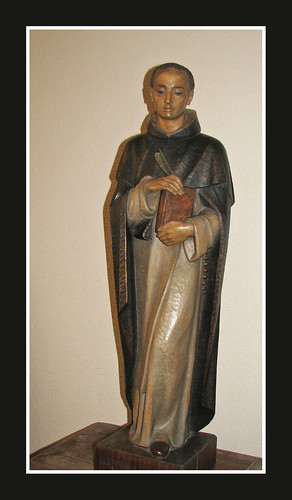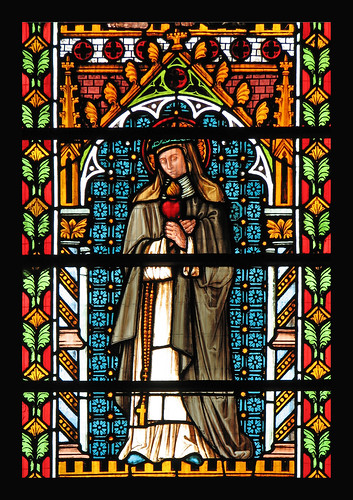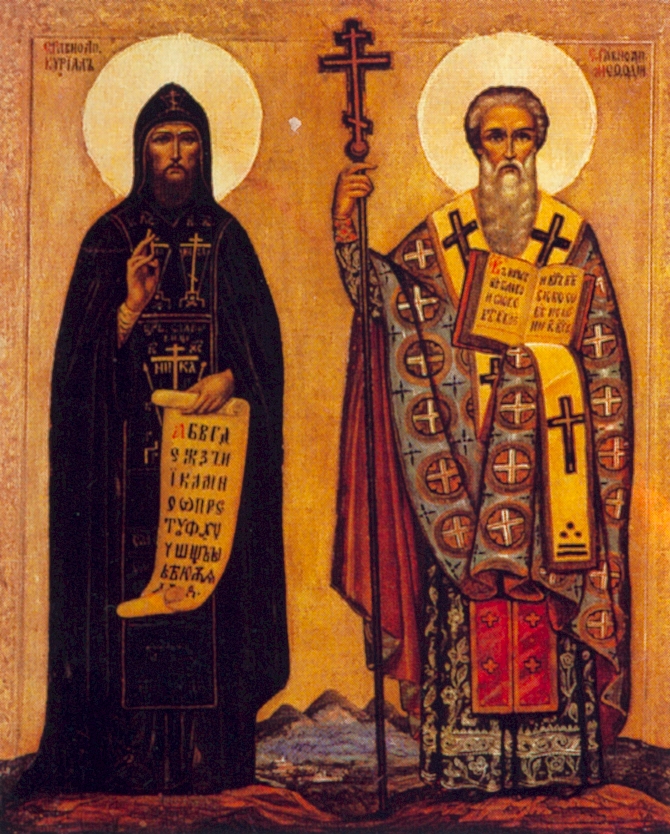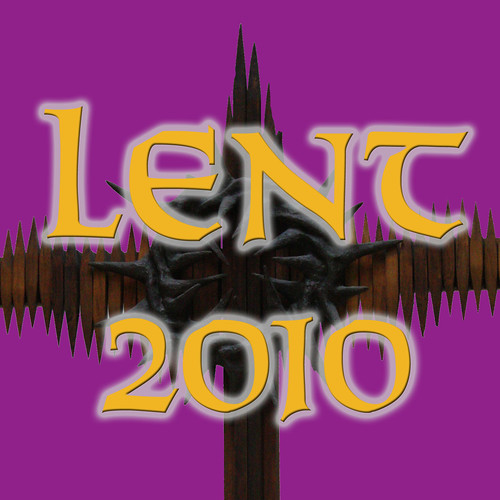In a
recent post on Godzdogz and in the comments that followed, we touched on issues of sexuality, love and intimacy for celibates - whether religious or laity. The feast of Blessed Jordan of Saxony, who took over from St Dominic as Master of the Order in 1222, is an opportune moment to explore the issues more fully. For although Bl Jordan's relics were lost after the priory in Acre (in the Holy Land) was captured by the Turks, a beautiful and remarkable legacy remains. This is a collection of 56 letters, of which 37 were addressed with ardent love and devotion to Blessed Diana d'Andalo OP, a Dominican nun in Bologna.

In his foreward to the
second edition of 'To Heaven with Diana!', the current Master of the Order, fr Carlos Azpiroz Costa OP said that "these letters... are a pearl of Dominican spirituality [which] show how it is possible for divine charity to transform human hearts with warm and fraternal love. If religious life were not to change hearts of stone into hearts of flesh, what would be its value? We have taken up the adventure of the Lord's call so as to love more and not less". Therefore, I recently noted that it was a fundamental human right that all people, as sexual creatures, are free to love and to be loved. For love is essential if we are to flourish and be opened to our full human potential. However, human loving is not only expressed through sexual intercourse - although this is a holy, good and beautiful act within its proper context. Our sexuality and love is fundamentally expressed and fulfilled through a life poured out for others. So, the former Master of the Order, fr Timothy Radcliffe OP has said that "sexuality is about communion; it speaks. And what it should express is mutual generosity, the giving and the receiving of gifts".
Bl Jordan's letters, which he exchanged with Bl Diana, speak of just that kind of communion and self-gift that lies at the heart of all human loving. For example, in 1231 he wrote to Bl Diana to console her in their separation. He says:
"Why are you thus anguished? Am I not yours, am I not with you: yours in labour, yours in rest; yours when I am with you, yours when I am far away; yours in prayer, yours in merit, yours too, as I hope, in the eternal reward?" Jordan's letters also show the mutuality of love, for in another letter he said:
"You are so deeply engraven on my heart that the more I realize how truly you love me from the depths of your soul, the more incapable I am of forgetting you and the more constantly you are in my thoughts; for your love of me moves me profoundly, and makes my love for you burn more strongly". Again, in 1229 at Christmastide, he laments that he does not have time to write Diana a long letter, and so he sends her
"a very little word, the Word made little in the crib". But in addition he says:
"There is another word that I send you, small and brief: my love, which will speak for me to your love in your heart and will content it". However, the love that Jordan and Diana share is not possessive or exclusive but open to Another, namely Christ. Indeed, above all, Jordan's love for Diana points to God, who is love, and they are united in their mutual love for God. Thus, fr Carlos adds: "It is the love of Jesus that brought them together, and it is echoes of that divine love, resplendent in their hearts that granted their love its depth, purity and stability". Something of this can be seen in one of the last letters Jordan wrote around 1236. He says:
"Beloved, since I cannot see you with my bodily eyes nor be consoled with you presence as often as you would wish and I would wish, it is at least some refreshment to me, some appeasement of my heart's longing, when I can visit you by means of my letters ... Yet whatever we may write to each other matters little, beloved: within our hearts is the ardour of our love in the Lord whereby you speak to me and I to you ..." And again, he says that God is
"the bond whereby we are bound together: in him my spirit is fast knit with your spirit, in him you are always without ceasing present to me wherever I may wander".Therefore, the union of their love in Christ is a source of great consolation and hope for Jordan and Diana. In a letter dated to 1229 he writes:
"Let it not be a heavy burden on you, beloved, that I cannot all the time be with you in the flesh, for in spirit I am always with you in love unalloyed. Yet I cannot wonder that you are sad when I am far from you since, do what I may, I myself cannot but be sad that you are far from me; but I console myself with the thought that this separation will not last forever: soon it will be over, soon we shall be able to see each other, endlessly, in the presence of God's Son Jesus Christ who is blessed for ever". What Jordan believes is part of the hope of all Christian lovers. For when lovers speak of endless love, this only becomes a reality when they find themselves embraced in the eternal love of God, who is a communion of love: Father, Son and Holy Spirit.

Some may be surprised, or even scandalized, by the intensity of Bl Jordan's love for Bl Diana and his passionate desire to be in her company. But the 12th-century St Aelred of Rievaulx, who was a master of spiritual friendship and charity, warned religious against "a love that in addressing itself to all, reaches no one". So, fr Timothy notes that "drawing near to the mystery of love will also mean that we shall love particular people, some with friendship, some with deep affection, and maybe some more passionately". Hence, we notice that Christ, who loved all even to the point of death, also had friends and disciples who were especially beloved.
Often we can be afraid to love, or are afraid of our sexuality and the power that desire unleashes. And yet, if we are to preach a God of love who was wounded for the sake of us, his beloved, we have to learn to love well. Unless we open our heart to our neighbour in love, how can we love God? So, we need to risk the vulnerability of love - which is why our sexuality can be such a sensitive and painful subject - and be wounded by the beauty of love. That vulnerability is evident in Bl Jordan's letters and the wounds of love are also expressed in his writings. In 1236 he said: "
O Diana, how unhappy this present condition of things which we must suffer: that we cannot love each other without pain and anxiety!" We may wonder why Jordan and Diana did not just leave the Order and get married; why did they endure the pain of separation? An answer is found in their mutual and higher love for God. So, they sacrificed the passing happiness of temporal love, lived the vocation that God had given them, and trusted that their shared love in Christ would secure a lasting happiness of eternal love.
What is the result of loving well? Holiness. As fr Gerald Vann OP says: "[Diana's] love had given Jordan strength, comfort, joy through his many cares and troubles. It had done more: it had called forth from his own heart a flowering, a fullness of life, which helped to make his greatness, helped to make him what he was, what the Order needed, and God wanted, him to be". Bl Jordan's love opened him up to others so that he was a most attractive and effective preacher of God's love. The fecundity of his love is shown in the number of vocations he attracted to the Order. It is estimated that in his lifetime he drew 1000 novices to the Order; hence he is the patron of Dominican vocations! A final point concerning Jordan and Diana is made by fr Gerald: "When God brings a human love to a soul who before loved only himself ... [God] is giving [the soul] more to love him with ... Every love you have - of nature, or art, of men, of wisdom - is an added way of loving and worshipping him, an additional gift to offer him. But that means in the last resort a gift to give back to him. For every love is a new joy but implies also a new sorrow, until that "strong city" [heaven] is reached on which the hearts of Jordan and Diana were set".
 Jean Vanier, founder of the L'Arche movement in which those with disabilities live with those that care for them, described his communities as being 'for those with special needs, and for those that think they don't have special needs'. His point is that each one of us has our weaknesses, each one of us bears the scars of both our own sin and the sin of others, each one of us has an inner darkness. Often however, we are not prepared to admit this. Instead we are tempted to divide the world in very black and white terms: good and bad, friends and enemies, clean and unclean. Yet these distinctions are unreal. They are not based on the truth and cannot set us free. Instead, by denying that we even have a problem, they stunt our development and limit our capacity to love.
Jean Vanier, founder of the L'Arche movement in which those with disabilities live with those that care for them, described his communities as being 'for those with special needs, and for those that think they don't have special needs'. His point is that each one of us has our weaknesses, each one of us bears the scars of both our own sin and the sin of others, each one of us has an inner darkness. Often however, we are not prepared to admit this. Instead we are tempted to divide the world in very black and white terms: good and bad, friends and enemies, clean and unclean. Yet these distinctions are unreal. They are not based on the truth and cannot set us free. Instead, by denying that we even have a problem, they stunt our development and limit our capacity to love.






























